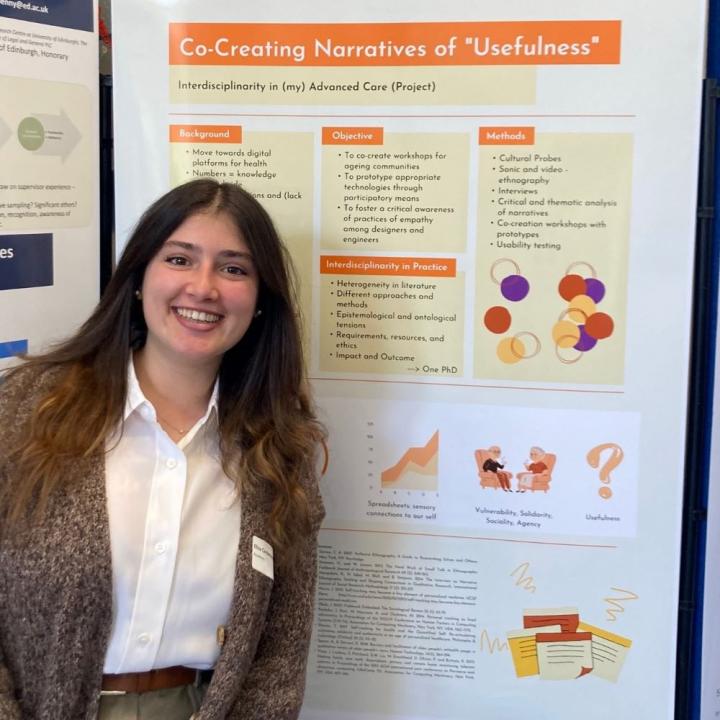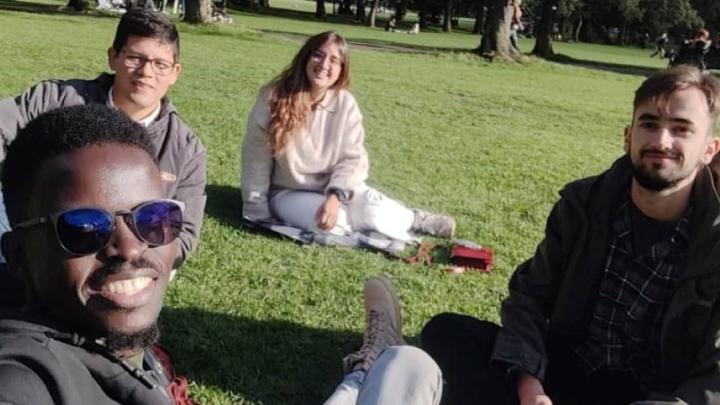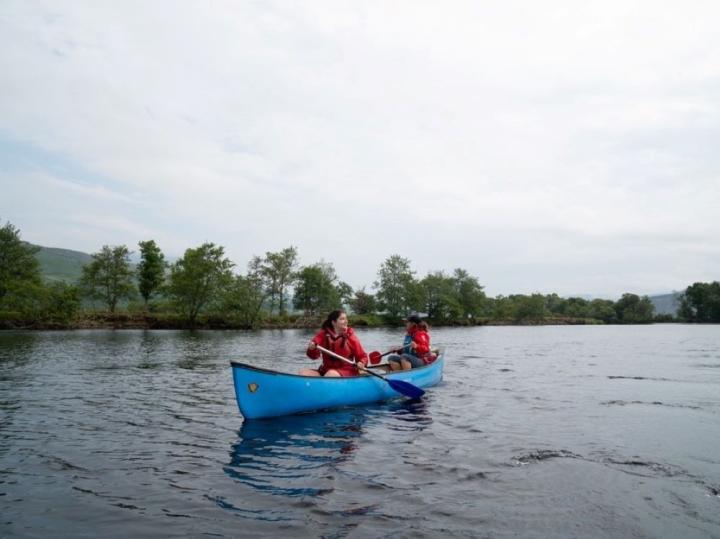Student Spotlight - Elisa Cardamone
Meet Elisa, an Academy student whose "fragmented" CV proved to be the perfect fit for her interdisciplinary research project on practices of empathy in technology.
1. Name
Elisa Cardamone
2. What is your project title and who are your supervisors?
'Co-Creating "Narratives of Usefulness": Advancing Self-Care Through Empathy-Oriented Digital Device Interventions with an Ageing Population', supervised by Dr Arno Verhoeven (School of Design), Prof Ian Underwood (School of Engineering), Prof John Vines (School of Informatics).

3. What is your background?
Academically, I have a BA in Archaeology and Anthropology from the University of Manchester with a semester abroad at Arizona State University, and an MSc in Medical Anthropology from the University of Oxford. Personally, I am Italian (and an avid Tiramisù connoisseur).
4. What drew you to the Academy?
Throughout my studies, I often felt that my interests were not being fully addressed by the class curriculum. So, I enrolled in multiple summer schools and online courses, following my curiosity. In the end, I found myself with a CV that seemed quite fragmented. In March 2022, I found online a project from the Academy, and the more I read about it and about the supervisory team the more I felt it was everything I was looking for! That ‘fragmentation’ of interests had a name, interdisciplinarity. I then saw that the PhD project came with a cohort, a taught year, an internship, extra activities, and full funding. To my knowledge, this was (and probably still is) the only program of its kind in the UK so I had to apply!
5. How did you find your taught year?
As an international student, the taught year was incredibly useful to get to know new people, explore the city of Edinburgh, discover all the services that the university offers ahead of the research phase, and most importantly learn about the Scottish health and social care systems. I feel much better equipped now to start my research!

6. What is your PhD about and why does it matter to you?
My PhD project addresses questions of usefulness regarding digital devices. I care about this topic for many reasons. One of them is that we often develop technologies that chase ‘innovation’. Yet we overlook how a device can change people’s sense of self and so their participation within communities and personal relations. A device can connect but can also isolate, it can empower as much as it can stigmatise. It does much more than being an item on the market. So when designing, we need a framework that considers the social techniques and values of living well together, as well as technologies’ potential to reshape communities by creating new meanings and practices.
7. What’s something that’s surprised you about your experience so far?
I would say that I was surprised by the number of opportunities we were offered and by the spirit of encouragement with which our ideas were welcomed throughout the year. I was also surprised by (and admired) everyone’s breadth of knowledge, expertise, and connections but also approachability and propensity for having fun together! Overall, it has been so much more fun than I would have thought!
8. Any tips for those interested in a PhD?

Forget about your research for a moment! Instead, when looking into doing a PhD, think about the people you would work with in the research centre, the activities that are proposed alongside the research, the network of connections you can build, and the city itself. A PhD is three or four years of your life so I would ask, what are some things that you might want to do in these years outside of your office hours? Do you want to explore European capitals, do you want to learn how to surf in Australia? Or do you want to live at home so you can take care of someone who needs you? Reflect on what matters to you as a person because ultimately what you do outside of the office and who you spend time with is going to shape the quality of your research (and your future) as much as a supervisory meeting or a conference. So, yes, you do need to identify a topic and a supervisor for your PhD, but you also need to find a place where you can nourish as an individual.
9. Twitter/LinkedIn/Github/any other professional platforms you would like to share?
You can find me on LinkedIn: https://www.linkedin.com/in/elisa-cardamone/.

